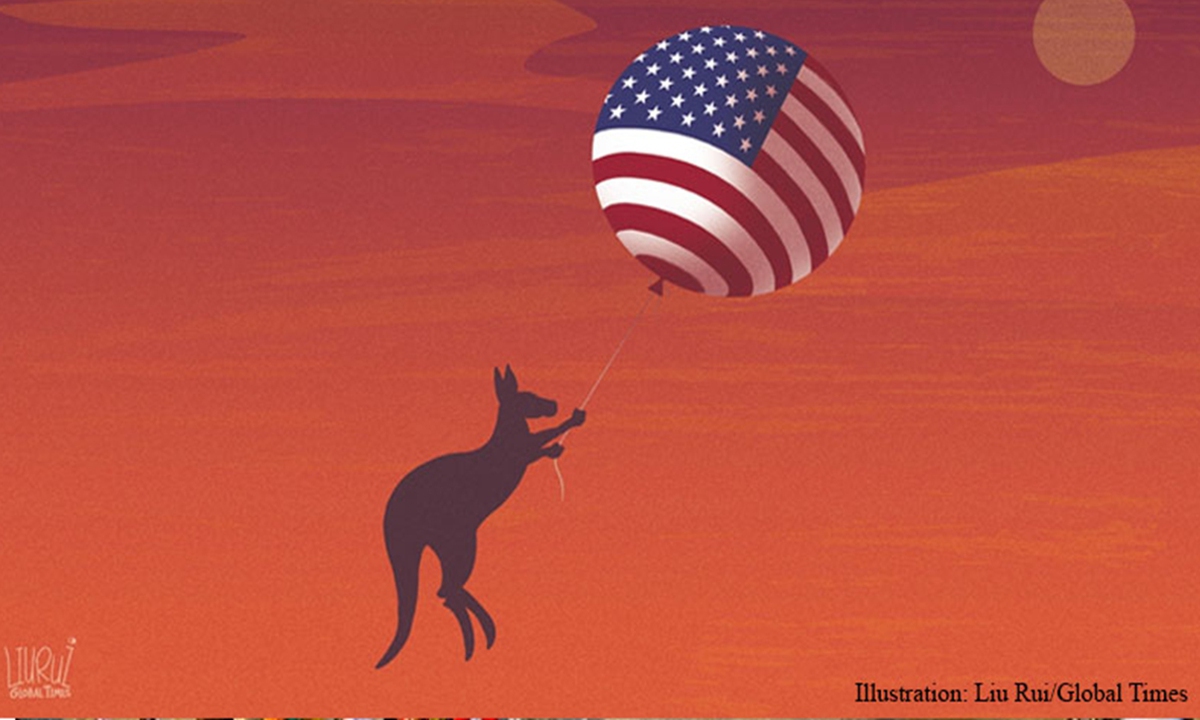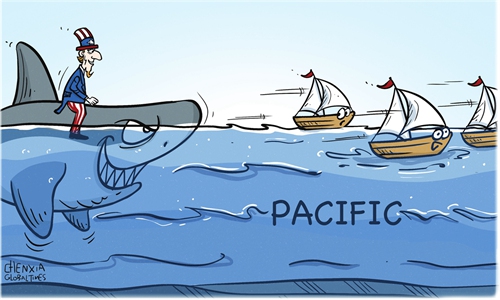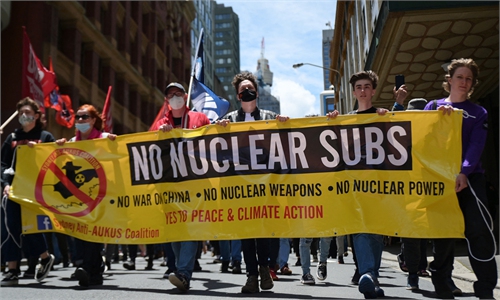Being an offensive bridgehead not in Australia's national interests: Global Times editorial

Illustration: Liu Rui/GT
On Saturday, the US and Australia held the "2+2" meeting between the foreign and defense ministers in Brisbane. After the meeting, the two sides announced a series of defense cooperation plans to strengthen and expand the military alliance between the two countries. In addition to increasing the rotating presence of the US forces at military bases in northern Australia and the longer and more frequent visits by US nuclear submarines to Australia, that the US will help Australia develop missile production capabilities has also sparked widespread coverage and comments. Australian Defense Minister Richard Marles expressed hope that Australia could start producing missiles within two years, adding that "Australia at this moment has no better friend than America."The reason why the missile production capacity has received attention has a lot to do with the impact of the prolonged Ukraine crisis on the global military equipment, especially the supply of weapons and ammunition. Deeply entangled in the Ukraine crisis, while keeping its eyes on Beijing and bent on deterring China, Washington has developed anxiety about the capabilities of its defense industry and the supply of weapons and ammunition.
Therefore, the US hopes to improve its own capabilities and at the same time bring its allies, especially the Asia-Pacific allies, into its defense industry production chain, not only to solve the problem of Ukraine's shortage of weapons and ammunition, but more importantly, to show China the US' ability to launch a protracted war and support the Taiwan island. From the content of the US-Australia "2+2" talks, it can be seen that Australia has undoubtedly become the first choice of the US. But the question is, will this really be the embodiment of "no better friend," as Marles claimed?
In fact, on the contrary, Canberra is gradually stepping into the strategic sickness of "sacrificing its own interests to support US interests" as warned by some domestic strategic scholars in recent years, and the nightmarish scenario of "unknowingly" going to war with China. Not only did the media interpret this US-Australia military cooperation upgrade as "countering China," even US Secretary of State Antony Blinken himself said that such cooperation is very important if the US and Australia can "oppose China's efforts to disrupt freedom of navigation and overflight in the South and East China Seas," which directly target at China. For Washington, the more fundamental idea behind helping Australia develop its missile production capabilities is to position Australia as a bridgehead for attacks against China.
For a period of time, Canberra has generally taken the initiative to cater to Washington's strategic vision, emphasizing its "long-range strike capability" and "effective projection" in its military development. The Defence Strategic Review released in April this year, considered as the most important review since World War II, showed an obvious "offensive" ideological tendency. The 20 C-130J Hercules transport aircraft and 220 Tomahawk missiles worthy of tens of billions are the very example. The deployment of B-52 bombers capable of carrying nuclear warheads by the US at the base in northern Australia is also considered to be a signal to China that Australia is willing to become a "surprise vanguard."
Behind Canberra's compliance with Washington lies its desire to expand its own influence. When Marles said that Australia has no better friend than the US, these words might conceal Australia's self-satisfaction of being the self-proclaimed "deputy sheriff." It is understandable for Australia to develop missiles for defense purposes, but it must be said that the true cost of Washington's so-called "assistance" which aims at curbing and deterring China, laced with a display of military provocation, is likely too high for Canberra to bear.
Australia has been involved in nearly every overseas war initiated by the US, seemingly falling into a path of habitual dependency on supporting and participating in American adventurism. However, in terms of its own territory, Australia has never faced a genuine external threat and lacks the necessary risk awareness. By serving as the frontline base for Washington's aggression toward China, Australia is essentially tying itself with explosives and placing the lit fuse in the hands of Washington politicians known for their adventurous and provocative thinking toward China. If Australia provides a stronghold or arms for deterring or attacking China, it will undoubtedly face resolute retaliation from China. This is not alarmist talk but military common sense; Australia must not harbor any illusions.
We note that some insightful individuals in Australia have concerns about this. The current government has made efforts to improve bilateral relations, but the US-Australia military agreement has significantly offset those previous efforts and created a substantial impediment to the substantive improvement and development of China-Australia relations. We want to emphasize that, in matters related to China's core interests and Australia's own future and destiny, the Australian government has no room for making foolish decisions.


